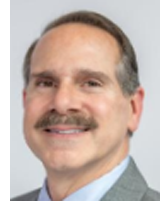 |
||||||||||||||||||||||||||||||||||||||||||||||||||||||||||||||||
| Past Issues | Subscribe | Send to a Friend | compostingcouncil.org | ||||||||||||||||||||||||||||||||||||||||||||||||||||||||||||||||
The industry needs your help to find solutions. There are some really tough conversations going on right now regarding compostable products and their place in the circular economy.
It is IMPERATIVE for you to be involved in this conversation, whether accepting compostables is in your business plan right now or not. It is especially important if you are considering accepting compostables right now. Waste generators are dedicated to keeping compostables in the waste stream, so we need to work together to find solutions.
I am urging you to participate in this special set of workshops culminating in a discussion among composters in July. We purposefully set this up to be a conversation led by COMPOST MANUFACTURERS. The role we have given the compostable products industry is watching, learning, engaging and sponsoring.
You, as an individual compost manufacturer, may feel that what you do about compostables is your decision alone. But you are receiving this note because our USCC members are seen as compost industry leaders. What you choose to do will INFLUENCE others around you.
Even though this is your busiest time of year, this series will set the tone for the future of our industry. We need you here.
The release is part of a month long "conference" on compostable products this summer. The Conference consists of two educational workshops, June 17 and 24, and a Summit on July 15. All events are online. The workshops delve into the science, history, current status, testing and labeling of compostables, and look at how some of the big issues, like associated contamination and additional costs, are being managed. The Summit will feature a panel of experienced compost manufacturers and will explore the key question "should I accept compostable products at my facility" and what are the consequences of deciding one way or another. The Summit will also coincide with the release of the second publication on the topic, a "Decision-Making Guide on Accepting or Rejecting Compostable Products," including a decision tree and set of worksheets to help current and future composters. "Compostable products can help divert more food scraps, reducing greenhouse gases and increasing the total amount of compost available to help increase healthy soils and carbon sequestion," explains Frank Franciosi, Executive Director of the USCC. "On the other hand, accepting them opens the door to more plastic contamination, increases processing costs, and limits the number of markets the compost can be sold to. Composters have to weigh the costs and benefits. We have developed this series to help compost manufacturers understand their options." The new Primer can be downloaded from the USCC website here: https://www.compostingcouncil.org/page/CompostableProductsPrimer For more info on the Conference, go here: https://www.compostingcouncil.org/page/Composters-Conference-on-Compostable-Products
The platform, called a Learning Management System (LMS) and to be named "Compost U," will enable the USCC and the Compost Research and Education Foundation (CREF) to significantly expand online training and industry education offerings. This LMS will enable the USCC to expand its training for state chapters as they grow. Vermeer Corporation, founded in 1948, has an international reputation for delivering high quality equipment and support to customers in more than 60 countries. With a focus on safety and service, Vermeer recognizes the need for a more comprehensive education on compost operations. In addition to being the exclusive sponsor of the LMS platform Vermeer will be providing key content for the LMS, including but not limited to educational resources related to safety and equipment maintenance. As the compost industry expands nationally there is great demand for trained and certified compost operators and professionals who run safe, efficient, neighbor- and environment-friendly operations. Vermeer’s sponsorship of the launch of Compost U will help USCC and CREF to train the next generation of compost professionals. Compost U will be hosted on Freestone LMS by Community Brands, the current host of the USCC's membership database and website. The USCC's professional credential programs now boasts nearly 100 Certified Compost Operation Managers (CCOMs) and Certified Composting Professionals (CCPs). Each certified individual must participate in continuing education totaling 30 Professional Development Hours (PDHs) every three years. Compost U will be tied into the USCC’s database so that certificants’ PDHs will be automatically tracked through the certificants’ personal account. USCC and CREF training and education resources, such as conference talks, webinars, short classes and new longer advanced courses will be integrated into Compost U, providing rich and meaningful content. Compost U will be launched by the end of the fall. Thank you for your loyalty and collaboration with your fellow members in the US Composting Council! The US Composting Council is so glad to have you as a member. June 30, 2021 is USCC's end date for current memberships. Please remit payment by June 30 to avoid losing access to any member benefits. If you would like to upgrade to a higher membership level, reach out to membership manager Eric Hudiburg at ehudiburg@compostingcouncil.org. Higher membership levels offer greater access to the entire USCC community.
The USCC’s Annual Conference and Tradeshow is the premier professional meeting for composting, organics recycling, and related topics. Speakers and workshops will be IN-PERSON in Austin.
COMPOST2022 is a big deal for a number of reasons. First, it will be our first in-person conference since the pandemic shut us down last year. Second, COMPOST2022 will be our 30th annual conference and tradeshow. We are going big and we think this is fitting considering we will be in Texas!
Save the Date - Jan. 24-27, 2022
Be a Speaker - Abstracts due by June 30, 2021
Be a Sponsor at COMPOST2022 - Learn More
The USCC needs your help!
Mike Larrivee is a licensed professional geologist and general manager for Atlas Organics Composting and Hauling Operations. He received a master of science degree from the Earth Science Department at the University of Memphis and continued his postgraduate academic training as a William J. Fulbright Scholarship Award Winner in Latvia. In 2019, Mike became the vice president of the Tennessee Chapter of the US Composting Council. He is the founder and former executive director of Compost Fairy, a non-profit waste diversion and soil rehabilitation effort, founded in Memphis in 2017. Compost Fairy won the Excellence in Green Business Award from the Tennessee Urban Forestry Council for 2018 and the Governor’s Environmental Stewardship Award in 2019. Hear from Mike: Why I chose to pursue the Certified Compost Operations Manager Certification ... "The CCOM certification is important for my professional development and allows me to communicate to the composting community that Atlas is committed to providing the training necessary to our leadership to maintain high standards of production in the field and consistently produce outstanding products. We value our partnership with USCC and the resources and knowledge they provide."
Matt Ball is the compost facility operator at the North Carolina State University Compost Facility and Research Cooperative. The facility is located at the NCSU Lake Wheeler Road Field Lab and processes all food waste collected at the university as well as animal bedding from the School of Veterinary Medicine, greenhouse material from the College of Agriculture and Life Science, and wood chips generated on campus. The facility also serves as a living learning lab where students can regularly tour and learn about composting and faculty can use its resources for their own research. Matt was hired as the facility operator in July 2019, just prior to its official opening. Before starting with NCSU Waste Reduction and Recycling, Matt worked for NCSU’s Center for Environmental Farming Systems where his focus was on organic crop research and extension. Prior to that, Matt spent years managing an organic vegetable farm in Orange County, NC, where he first started making and utilizing compost. He lives in Wake Forest, NC. Why I chose to pursue the Certified Compost Operations Manager Certification... "I just think that if there is a reputable professional certification that’s available in your field, it’s a good idea to pursue it. It can be a catalyst in your career and it helps to build the industry you’re a part of. The Certified Compost Operations Manager certification exemplifies all of this."
The USCC is proud to sponsor the New York City Department of Sanitation (DSNY) Sanitation Foundation food waste toolkit. This toolkit will be launched on June 14 and will help guide users on ways to reduce food waste before it starts, minimize impact in the kitchen, and reuse food scraps for a better planet and community. The food waste toolkit will accompany an interactive database of Sanitation Foundation-approved food waste solutions vendors operating throughout the five boroughs.
Two of the US Composting Council’s lobbying initiatives in Maryland — including the state’s first organics diversion measure that became law yesterday — are now official after being passed in the 2021 General Assembly session. Governor Larry Hogan announced a number of bills that were enacted without his signature yesterday.
“We are very pleased to see Maryland added to the states with laws that will grow compost infrastructure,” said Frank Franciosi, executive director, US Composting Council. “Our chapter there, the MD-DC Compost Committee and other advocates have worked hard on this for several years, and we are glad to see them finally achieve this victory with HB264.”
Marcus Zbinden, chair of the USCC Zoning Task Force, and Advocacy Director Linda Norris-Waldt presented the draft Model Zoning Ordinance at the Vermont Organics and Recycling Summit in May. The task force wants to make more presentations about the USCC’s zoning work this fall. If you know of a group that is interested, contact Linda Norris Waldt at lnorriswaldt@compostingcouncil.org.
Mentoring Committee Update Kudos to the wonderful Mentoring Committee chair Shelby Hoglund and committee members Antoine Abou Moussa, Natasha Dyer and Claire Dakhlia’s dedication in the arduous task of matching mentors and mentees. Watch out for the mentor matching emails in your inbox soon! Save the Date - Next YPG Webinar in July YP membership scholarship available
World Centric announced Leaf+, the first all-natural, 100% plant based, fully compostable, innovative alternative solution to fluorinated chemicals such as polyfluoroalkyl substances (PFAS) in disposable fiber tableware. Combining cutting-edge technology with an all-natural, proprietary application, the World Centric Leaf+ solution is PFAS free, oil resistant, food-grade, and suitable for hot and cold use, an industry first.
“World Centric has been committed to removing PFAS from our products. Creating a solution that doesn’t compromise the performance and excellence of compostable fiber products has been a challenge for the industry,” explains Mark Stephany, World Centric senior vice president of sales. “We’re excited to announce Leaf+, a much-needed foodservice and retail packaging solution that is PFAS free and not only meets but exceeds expectations for the industry.”
Source: OnMilwaukee
"James Jutrzonka is the sixth generation of his family to work on the land of their Caledonia-based farm. Originally a dairy and vegetable farm – as well as a tree and shrub nursery – Jutrzonka and his father converted the business to Blue Ribbon Organics, a composting site, 12 years ago. They also have a second facility in Wauwatosa.
Blue Ribbon Organics processes safe, mostly organic compost for farmers, landscapers and gardeners."
Rubicon, a software platform that provides smart waste and recycling solutions to businesses and governments worldwide, announced today that the company is opening a new office space in Lexington, Kentucky, which will now serve as the firm’s global headquarters.
The location expands the company’s existing footprint in the state and honors its Kentucky roots. It joins the company’s other executive leadership office in New York City, which has remained in operation throughout the past year as the majority of Rubicon’s workforce transitioned to remote operations, a significant portion of which continues to be based in the Atlanta-metro region.
The marketing/sales lead will demonstrate a positive role model as a representative of Bio Town Ag, Inc. Responsibilities will include management of all marketing and sales efforts initially, and as sales grow, supervision of others on the marketing/sales team.
Established in 2016, the Compostable Field Testing Program (CFTP) is a non-profit collaboration between the CREF and BSIbio Packaging Solutions/BÉSICS (BSIbio) to field test compostable foodware across North America. The CFTP is a multi-year research project helping conduct on-the-ground field testing at active organics processing facilities. The program provides the test materials and method for any aerobic operator who wants to field test, and compiles results across facilities. The program enables compost manufacturers to answer their own questions about how specific materials may work in their operations, and at the same time contribute to a larger, broader understanding throughout the industry by submitting their data to the CFTP database. Once enough facilities participate, the anonymized results will be made available open-source. You can find more information on this program, and watch our one-hour webinar, via the CREF website: https://www.compostfoundation.org/FieldTesting.
To help deal with the issue of getting good samples for testing, CREF created two videos demonstrating the steps that should be taken in order to send compost samples to a lab for analysis. Both of these videos are available on the CREF website for free: https://www.compostfoundation.org/Education/Sampling-Videos. The videos were created as a guide to help with the sampling process. The accuracy of the laboratory analysis depends almost entirely on the quality of the sample submitted, and, particularly, how representative the sample is of a typical batch (up to 5000 cubic yards). Knowledge on how to properly take samples, and handle the preparation of the sample for analysis, is crucial to getting a reliable analysis, which is the basis for whether and how the compost will be used. The goal of the videos is to be a visual guide that can be used as a continual reference for current and future employees. Also available on the CREF website is the Sampling Reference Guide, which is downloadable and can serve as a reference for facility employees while in the field.
Thanks to the amazing generosity of so many at COMPOST2020, we were able to start a new research project: Development of Compost Application ROI Library, which was started in 2020 when Ron Alexander, of R. Alexander Associates, Inc., was hired to do the work. The goal of the project is to assist companies that sell compost with information that can increase sales leading to greater compost use. Since then, Ron has been focused on the following: 1. Interviewing U.S. companies that sell compost to understand current marketing efforts. 2. Identifying data needed to support their efforts to inform their clients. 3. Selecting 10 target applications. 4. Reviewing published studies that address the target applications and interviewing experts with knowledge regarding the target applications. 5. Developing compost application data sheets for selected applications. The plan is to have the ten application data sheets ready by the 2022 USCC annual conference. When that is completed, the CREF board of trustees will review whether a second phase of this project is needed, expanding the number of applications.
|
||||||||||||||||||||||||||||||||||||||||||||||||||||||||||||||||
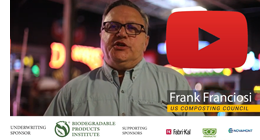
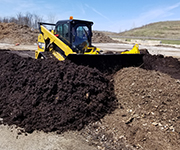
 As the range and number of compostable products continues to grow compost manufacturers are coming under increasing pressure to process them, whether it makes good business sense or not. To help composters understand what these products are, the different types, how they are certified as compostable, the current regulations and the immediate future, the US Composting Council (USCC) has released "Compostable Products: A Primer for Compost Manufacturers," written by Biocycle Associates.
As the range and number of compostable products continues to grow compost manufacturers are coming under increasing pressure to process them, whether it makes good business sense or not. To help composters understand what these products are, the different types, how they are certified as compostable, the current regulations and the immediate future, the US Composting Council (USCC) has released "Compostable Products: A Primer for Compost Manufacturers," written by Biocycle Associates. Vermeer Corporation, a global manufacturer of composting, industrial and agricultural equipment and longtime member of the US Composting Council (USCC), is providing critical financial support to launch the US Composting Council's new system for online learning.
Vermeer Corporation, a global manufacturer of composting, industrial and agricultural equipment and longtime member of the US Composting Council (USCC), is providing critical financial support to launch the US Composting Council's new system for online learning.

 This technical information, a WEP test method and viable labeling changes have been suggested to AAPFCO over the past two years. If you would like to support these efforts, please click onto the BioCycle links to review more detailed information, and then contact Ron Alexander (at the contacts below) before June 15, 2021. We need letters of support from the industry to illustrate to AAPFCO that there is support for our initiative.
This technical information, a WEP test method and viable labeling changes have been suggested to AAPFCO over the past two years. If you would like to support these efforts, please click onto the BioCycle links to review more detailed information, and then contact Ron Alexander (at the contacts below) before June 15, 2021. We need letters of support from the industry to illustrate to AAPFCO that there is support for our initiative.
.jpg)
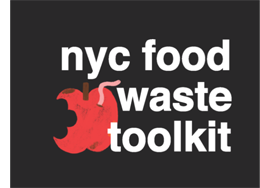
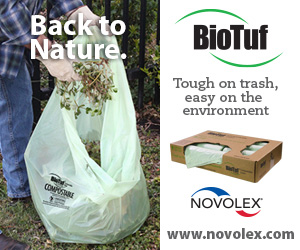

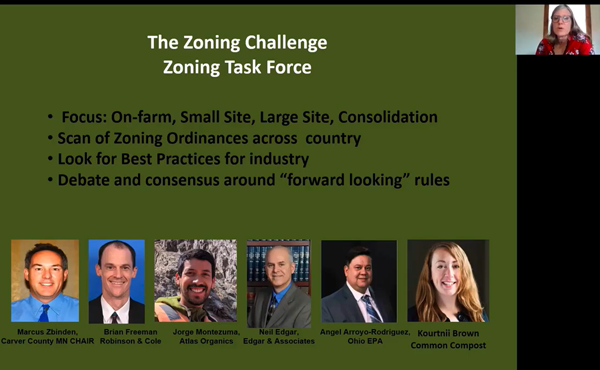
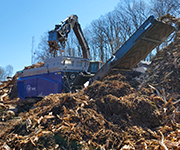
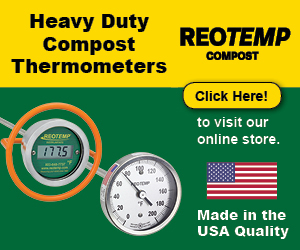



.jpg)
.jpg)
